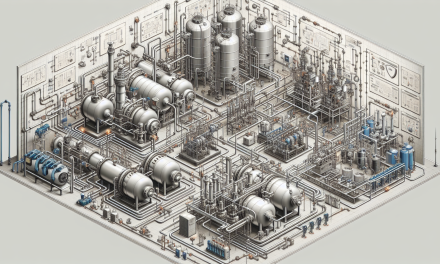Table of Contents
- Introduction
- Importance of Oil and Gas Management
- Understanding the Global Oil and Gas Industry
- Key Skills for Effective Management
- Advantages of Mastering Oil and Gas Management
- Additional Resources for Growth
- FAQs
- Conclusion
Introduction
Managing resources efficiently is crucial in the ever-changing landscape of the oil and gas sector. With fluctuating markets, advancements in technology, and environmental considerations, professionals in this field must possess a robust set of skills to navigate challenges and seize opportunities. By developing expertise in this domain, one can significantly enhance their career prospects and contribute meaningfully to global energy solutions.
Importance of Oil and Gas Management
The oil and gas industry plays an instrumental role in the world economy. Furthermore, it influences global energy policies, environmental strategies, and technological innovations. Understanding how to manage these resources effectively not only promotes organizational success but also ensures the sustainable development of the industry. This knowledge empowers professionals to make informed decisions regarding:
- Resource allocation
- Financial planning
- Risk management
- Environmental stewardship
Moreover, as energy demands evolve, staying abreast of trends and technologies becomes essential for competitive advantage.
Understanding the Global Oil and Gas Industry
A comprehensive grasp of global oil and gas operations is vital. This industry is multifaceted and varies significantly across different regions. Each area presents its unique set of challenges and opportunities. For instance, upstream operations focus on exploration and production, while downstream encompasses refining and distribution. A deep dive into these segments reveals complexities worth exploring.
Upstream Operations
In upstream oil and gas, exploration and drilling take precedence. Companies invest significant resources in locating new oil and gas reserves. Understanding geological formations, reservoir properties, and the technology used for extraction is crucial for professionals in this segment. For more insights on upstream operations, consider reading Unlocking the Secrets of Global Upstream Oil & Gas Operations.
Downstream Operations
On the other hand, downstream operations deal with refining and distribution. Here, the focus shifts to turning crude oil into various consumer products such as gasoline, diesel, and petrochemicals. Grasping the petroleum refining process is essential for effective management in these operations. Resources like Understanding Petroleum Refining and Petrochemicals: A Guide for Non-Technical Personnel can provide valuable insights in this context.
Key Skills for Effective Management
To excel in oil and gas management, one must cultivate a blend of technical and soft skills. The ability to analyze market trends, optimize operations, and lead diverse teams is indispensable. Here are some key skills that every aspiring professional should focus on developing:
Technical Proficiency
Equipping oneself with technical knowledge is foundational. Whether it’s understanding the nuances of drilling technology or refining processes, having a solid technical background lays the groundwork for informed decision-making.
Leadership and Teamwork
In the oil and gas sector, collaboration among various stakeholders is essential. Being able to lead diverse teams effectively fosters innovation and ensures project success. After all, successful management hinges on bringing people together to achieve common goals.
Financial Acumen
Strong financial skills play a significant role in managing budgets, investments, and profitability analyses. Understanding fiscal dynamics allows leaders to make prudent decisions that impact the bottom line positively.
Strategic Thinking
In a dynamic and unpredictable industry, strategic thinking is paramount. Professionals must anticipate market shifts and accordingly position their organizations to capitalize on new opportunities. This requires analyzing data, recognizing trends, and formulating adaptable strategies.
Advantages of Mastering Oil and Gas Management
Investing time in mastering oil and gas management translates directly into numerous professional advantages. Notably, it opens doors to career advancement and ensures individuals remain competitive in a demanding sector. Here are several benefits associated with becoming proficient in this field:
Job Stability and Growth
The oil and gas industry often offers stable employment, even amidst fluctuations in market conditions. With the increasing need for skilled professionals to manage resources sustainably, opportunities for growth continue to expand.
Contribution to Sustainable Practices
As environmental challenges mount, effective management contributes significantly to sustainable operations. Being well-versed in eco-friendly practices positions professionals as valuable assets in their organizations and beyond.
Networking Opportunities
Exposure to various sectors within the industry enables professionals to build expansive networks. Collaborating with peers, industry leaders, and experts fosters professional development and can lead to further career opportunities.
Enhancement of Critical Thinking Skills
Through complex problem-solving scenarios, mastering oil and gas management inherently enhances critical thinking skills. This ability to analyze and address challenges translates into improved decision-making in all professional undertakings.
Additional Resources for Growth
To further one’s knowledge and skills in oil and gas management, engaging with various resources proves beneficial. There’s a plethora of articles, workshops, and podcasts available that cover essential topics in-depth. Below are additional readings that significantly contribute to a broader understanding of the field:
- Navigating the Essentials of Offshore Pipeline Engineering: A Comprehensive Guide
- A Comprehensive Guide to International Petroleum Management in Oil and Gas Operations
- Unlocking the Basics of Mechanical Engineering for Non-Mechanical Engineers
- Master Global Oil and Gas Management Certificate Course
FAQs
1. What qualifications are typically needed for a career in oil and gas management?
While specific qualifications vary by position, a degree in engineering, business, or a related field is often beneficial. Furthermore, on-the-job experience and certifications in specialized areas can enhance employability.
2. How can I stay updated with the latest trends in the oil and gas industry?
Attending industry conferences, subscribing to relevant publications, and engaging in continuous learning through articles or online resources ensures staying abreast of emerging trends.
3. Is knowledge of global markets essential for oil and gas management?
Yes, understanding global markets greatly enhances decision-making. Knowledge of international energy policies, market dynamics, and economic factors plays a pivotal role in successful management.
Conclusion
In summary, excelling in oil and gas management demands a multifaceted approach. Equip yourself with the necessary skills, seek out valuable resources, and remain open to continuous learning. By doing so, you’ll position yourself favorably within this vital industry, ready to face challenges and capitalize on opportunities. Remember, the journey towards mastery is ongoing, and every step taken adds value to your professional repertoire.





